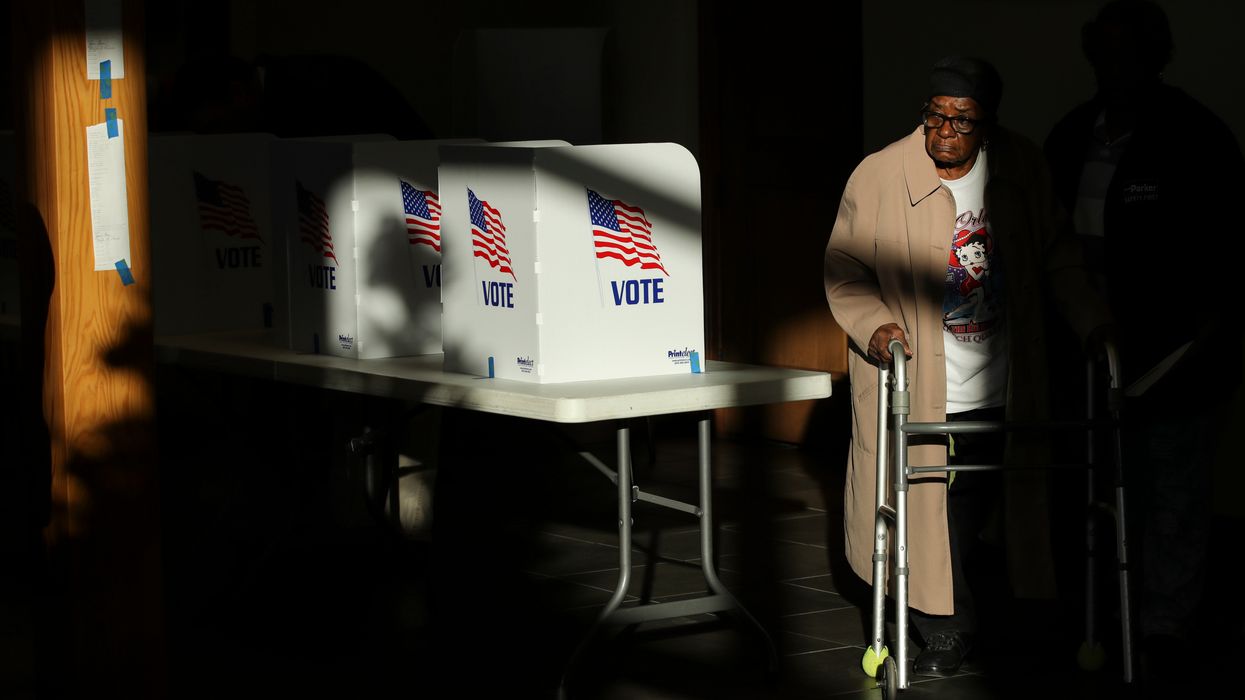Cohn-Postar is a graduate student in history at Northwestern University.
A lawsuit over a Mississippi election law could change the way that state elects its governor.
Four African-Americans filed the federal civil rights lawsuit in May, charging that the way their state elects its statewide officials violates the Voting Rights Act, the 14th Amendment and the principle of "one-person, one-vote."
To win election, a candidate for governor has to win an outright majority of the popular vote – and win a majority of Mississippi's 122 House districts.
If no candidate does both, the state House selects the governor, regardless of who got the most votes. No African American has been elected statewide since 1890.
Republican legislators in Mississippi defended the law by arguing that the plaintiffs provide "nothing more than conjecture" that they would be harmed by this election method because it has been activated so rarely.
As a historian of 19th-century voting rights in the United States, I believe this analysis ignores the history of anti-democratic gubernatorial election laws.
Today, Mississippi is one of only two states where the winner of the popular vote does not automatically become governor. Vermont is the other. In the 19th century, however, many states had such laws and the damage that these laws did to democratic legitimacy and political stability in the Gilded Age was not conjecture.
This November, Mississippi is preparing for its first close gubernatorial election since 1999 between Republican Lt. Gov. Tate Reeves and Democratic State Attorney General Jim Hood. Its origins and the track record of similar laws in more competitive states bear investigation. The election law that is the focus of the lawsuit could decide who wins.
The gubernatorial election law dates to 1890, when it was drafted into Mississippi's constitution by a nearly all-white convention.
The Southern Democrats in charge of the convention were intent on removing African Americans from politics. The constitution they crafted subjected prospective voters to a literacy test and poll tax — effectively disenfranchising nearly all African Americans.
They included the majority vote and state House district provision as a backstop to preserve white control of the state. However, voter suppression and a racially polarized electorate have produced few competitive elections, ensuring the backstop has rarely been necessary.
In the 19th century, many states with similar election laws had much more competitive elections. The disasters these laws caused demonstrate the worst-case possibilities of Mississippi's system.
In the late 19th century election laws like Mississippi's caused what legal scholar Edward B. Foley termed "a veritable epidemic" of crises.
Perhaps the worst crisis took place in Connecticut in 1890. Democratic candidates running for governor won the most votes in every Connecticut election during the 1880s. But they never quite captured a majority. The Republican-controlled legislature used the anti-democratic election law to install Republicans in office four out of five times.
In 1890, the Connecticut legislature was evenly divided between Republicans and Democrats. Deadlock ensued when that year's gubernatorial election was thrown to the legislature. In a three-way race, where the Democrat had won nearly 4,000 more votes than his Republican opponent, Republicans in the state Senate refused to seat him.
During the stalemate, the sitting Republican governor, Morgan G. Bulkeley, who had not even run for re-election, simply stayed in office for two more years. While Bulkeley's supporters commended him for stepping in to "hold the fort," his unelected tenure provoked a crisis of legitimacy that ground state government to a halt. When the legislature refused to appropriate funds for the state budget, Bulkeley borrowed $300,000 ($8.3 million today) from his family's company – Aetna Life Insurance – to pay for state operations. Neighboring states refused to acknowledge the legality of Connecticut's arrest warrants. At one point, the Democrats changed the locks on the governor's office and Bulkeley popped them off with a crowbar.
After two years of governmental paralysis, Luzon B. Morris, the Democrat who should have won in 1890, captured an outright majority and finally became governor.
In Maine in 1879, a similar election law came close to provoking a civil war. The sitting Democratic governor, Alonzo Garcelon, placed third in the election, behind the Republican and Greenback candidates. Because no one won an outright majority, the new legislature, which Republicans expected to control, would decide the winner.
As the incumbent, however, Garcelon had power over certifying the legislative election results. Using every trick in the book, Garcelon's cronies overturned enough election results to give his allies control of the new legislature.
The state's Supreme Court ruled his actions illegal, but Garcelon seated his illegitimate legislature anyway, hoping they would "re-elect" him governor.
Bands of armed Mainers began gathering in the capital. Only the intervention of Civil War hero and former Maine Governor Joshua Chamberlain averted bloodshed. Chamberlain, head of the state's militia, refused to take sides and forced calm on all parties. The crisis only came to an end when Chamberlain endorsed the supreme court's ruling and compelled Garcelon to back down. Maine quickly amended its constitution to permit governors to be elected with only a plurality of the vote.
If the civil rights lawsuit against the gubernatorial election process succeeds, it will mark a repudiation of Mississippi's legacy of racial disfranchisement.
If it does not succeed, then Mississippi's legislature and governor might want to consider the examples of Connecticut in 1890 and Maine in 1879.
Laws that place anti-democratic restrictions on the popular vote have a bad track record in competitive elections. They undermine the principle of popular rule, damage voters' faith in democracy and provoke crises of legitimacy.
This article is republished from The Conversation under a Creative Commons license. Read the original article.
![]()



















Trump & Hegseth gave Mark Kelly a huge 2028 gift